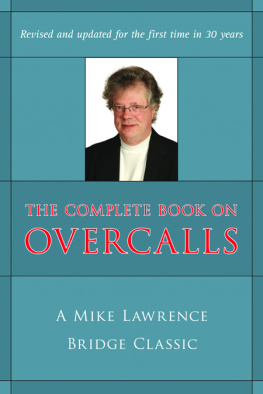Upcoming titles from Master Point Press
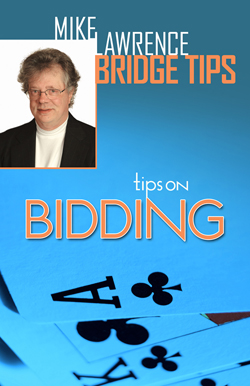
Tips on Bidding
978-1-77140-020-6 | March 2015
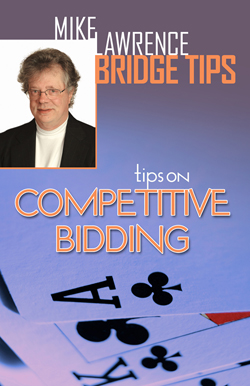
Tips on Competitive Bidding
978-1-77140-021-3 | July 2015
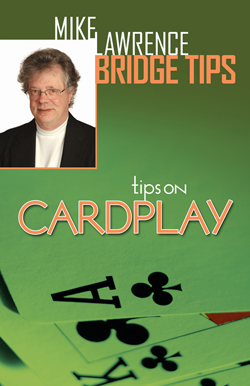
Tips on Cardplay
978-1-77140-022-0 | November 2015
A three-book series for intermediate players based on Mike Lawrences Bridge Tips series, first published twenty years ago. All material has been completely revised and updated.
Also Available from Master Point Press
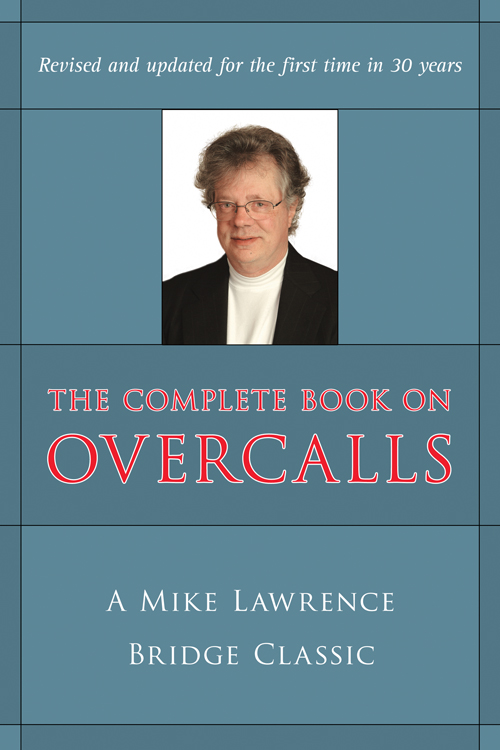
The Complete Book on Overcalls
978-1-897106-45-7 | USD 21.95 CAD 24.95
Originally published in 1980, this book has never been out of print. Now, almost 30 years later, the author has revised, updated and expanded the book to take into account modern developments in the theory and practice of competitive bidding.

The Complete Book on Takeout Doubles
978-1-897106-87-7 | USD 24.95 CAD 24.95
The definitive book on the oldest and most useful convention in bridge. Originally published in 1994, this book has been revised and updated to take into account modern developments in competitive bidding, which is the most rapidly changing part of the game.
Everything you need to know about takeout doubles is in this book. My only criticism is that it is long overdue.
Ron Andersen on the original edition
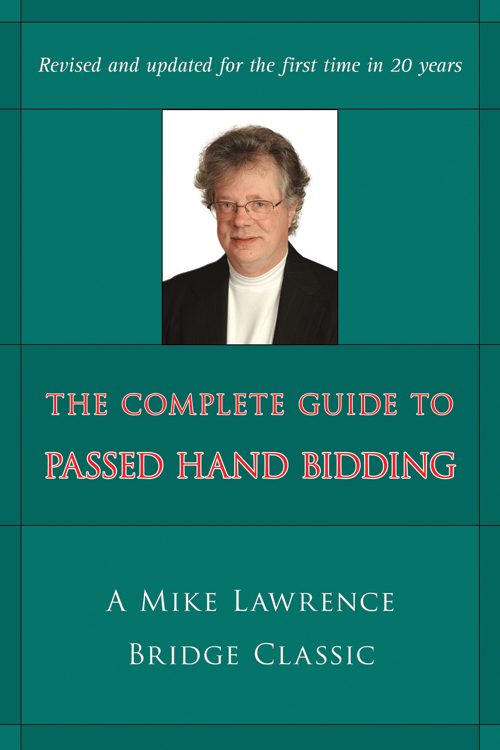
The Complete Guide to Passed Hand Bidding
978-1-897106-82-2 | USD 21.95 CAD 21.95
Originally published in 1989, this book quickly became recognized as a must-read for any would-be bridge expert, and has never been out of print. Now it has been revised and updated to take into account modern ideas in bidding.
A major contribution to bidding theory easy to understand and fun to read at the same time.
Kit Woolsey
Text 2014 Mike Lawrence
All rights reserved. It is illegal to reproduce any portion of this material, except by special arrangement with the publisher. Reproduction of this material without authorization, by any duplication process whatsoever, is a violation of copyright.
Master Point Press
331 Douglas Ave.
Toronto, Ontario, Canada
M5M 1H2 (416)781-0351
Email:
Websites: www.masterpointpress.com
www.teachbridge.com
www.bridgeblogging.com
www.ebooksbridge.com
Library and Archives Canada Cataloguing in Publication
Lawrence, Mike, 1940-, author
Falsecards / written by Mike Lawrence. -- Second edition.
A Mike Lawrence bridge classic.
Issued in print and electronic formats.
ISBN 978-1-77140-010-7 (pbk.).--ISBN 978-1-55494-603-7 (pdf).-
ISBN 978-1-55494-489-7 (epub).--ISBN 978-1-55494-740-9 (mobi)
1. Contract bridge--Defensive play. I. Title. II. Title: Falsecards.
GV1282.42.L39 2014 795.415 C2014-900574-1
C2014-900575-X
Co-editor Karen Lawrence
Copyeditor Sally Sparrow
Cover and interior design Olena S. Sullivan/New Mediatrix
Introduction
Falsecards in General
Before getting into specific hands and circumstances, I would like to offer a bit of advice relating to falsecards.
A FALSECARD IS INTENDED TO FOOL DECLARER, NOT TO FOOL YOUR PARTNER.
In general, defense is the hardest part of bridge. It is difficult enough when you know what is going on. Its nearly impossible when you have to guess. If you insist on sending out a bewildering array of signals, you will nail an occasional declarer or two. But you will also nail your partner.
Bridge is a partnership game. One or two or three successes will not compensate for a confused, embarrassed, or upset partner.
Ever had an experience like this one?
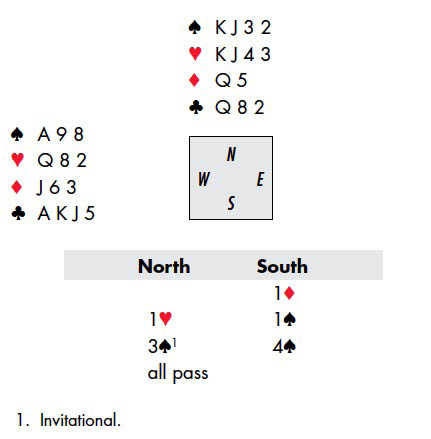
You lead the K and partner plays the three. Theres no way you are going to beat this on high cards, but there may be a way to promote a trump trick. Three things must happen:
1. Clubs must be 4-3-3-3.
2. Partner must have the 10.
3. Declarer must lead a spade from dummy to his queen.
If all this happens, you will win the first round of spades, and lead the thirteenth club. This will promote a trump trick. All this happening is against the odds, but something is better than nothing.
Putting it into practice, you continue with the A and another club. Clubs turn out to be 4-3-3-3. Declarer wins and leads the 2 to his queen and your ace.
The good news is that partner has the 10. The bad news is that he has just played it. When you lead the J (partner might have the 7), declarer guesses the position and makes the rest.
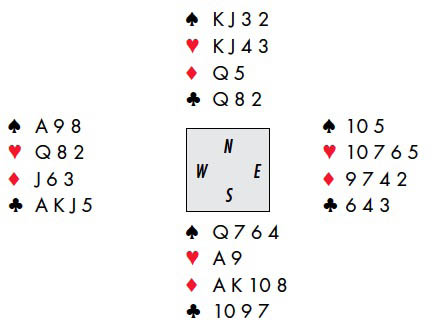
What went wrong? On declarers chosen line of play, 4 was going down. Why did partner ruin your plans?
The answer is that partner was falsecarding. He thought declarer might have the A. Partner played the ten, hoping to discourage declarer from finessing in spades if the situation were as below.

This was the layout partner was hoping for. Partner was trying to do a good thing. It just happened that on this occasion, it cost a game contract.
You may form your own conclusion.
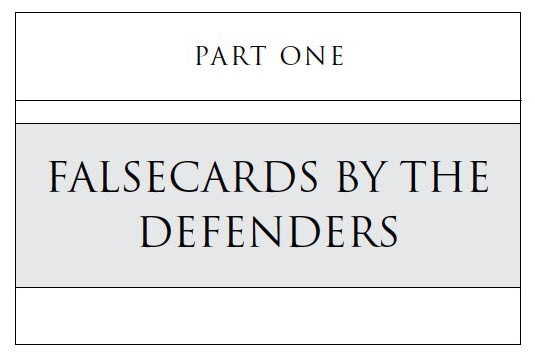
Chapter 1
Falsecards by the Opening Leader
There are a number of valid reasons for choosing to lead an unusual card. These reasons include:
1. You might lead third or fifth best in order to mislead declarer as to your length in the suit. (This assumes you normally lead fourth best.)
2. You might lead the wrong card from a sequence in order to mislead declarer as to where the high cards are, i.e., lead the jack from QJx.
3. You might underlead an ace against a suit contract.
Note that you do not make an unusual lead simply because you feel like it. You do it because there is a specific, defined reason for it. Falsecards are dangerous because they mislead partner as well as declarer. If you falsecard ten times and get five good results, four normal results, and embarrass partner once, you can be sure partner will remember the tenth time. He wont like it, and worse, it may cause him to doubt your carding in the future.

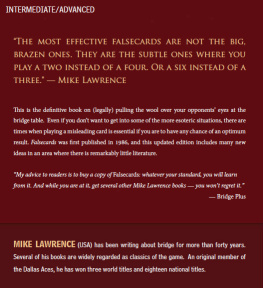



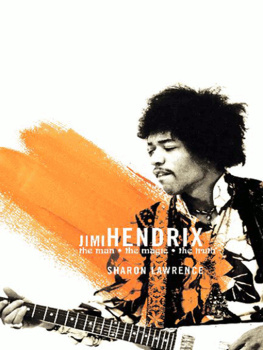
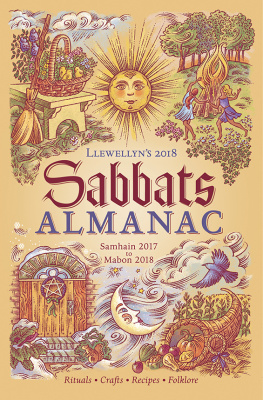

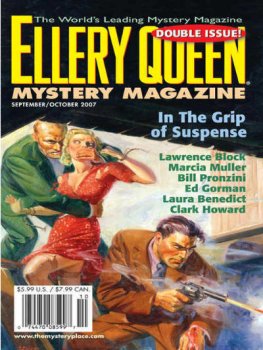


![Lawrence Durrell [Lawrence Durrell] - Caesar’s Vast Ghost](/uploads/posts/book/142113/thumbs/lawrence-durrell-lawrence-durrell-caesar-s.jpg)



![D. H. Lawrence [Lawrence - Sons and Lovers [Annotated Version]](/uploads/posts/book/61295/thumbs/d-h-lawrence-lawrence-sons-and-lovers.jpg)
